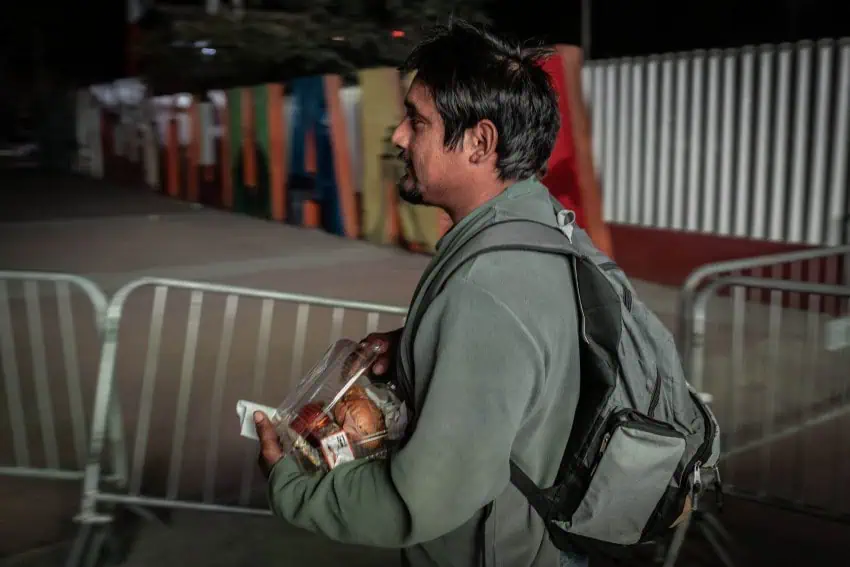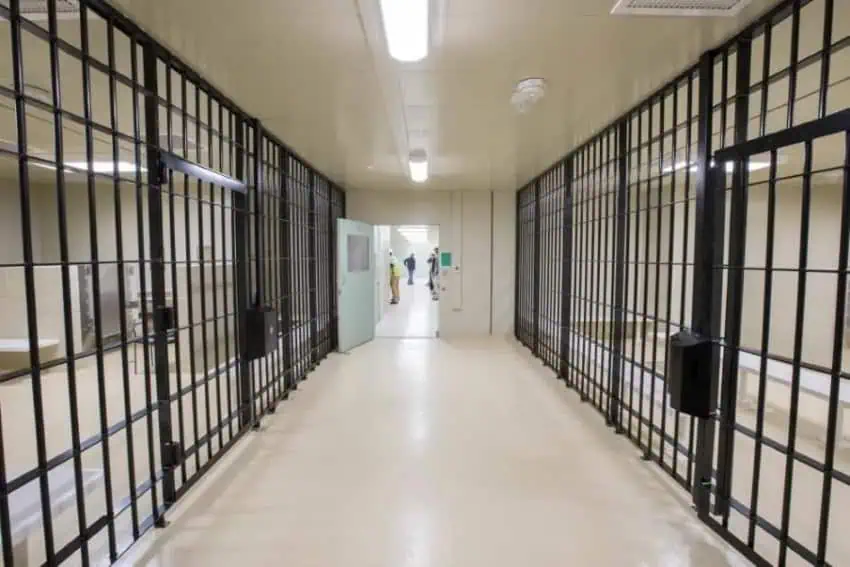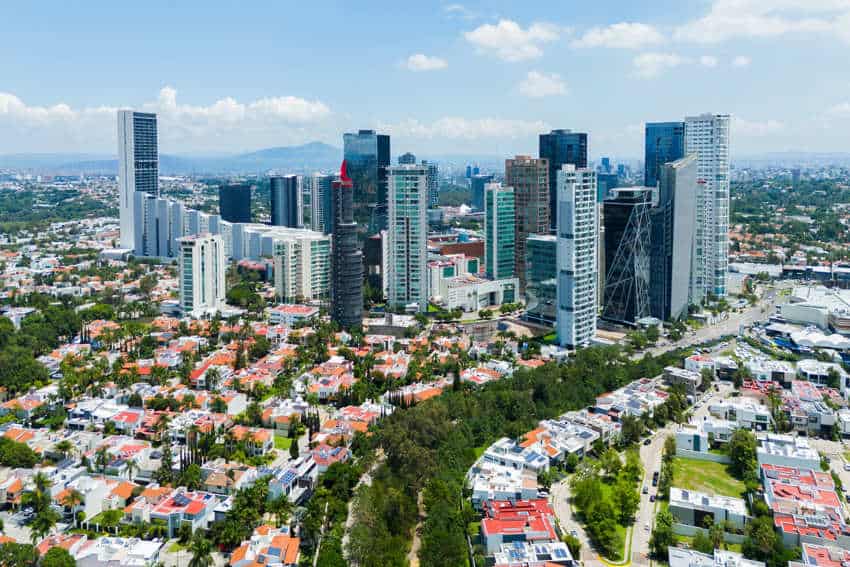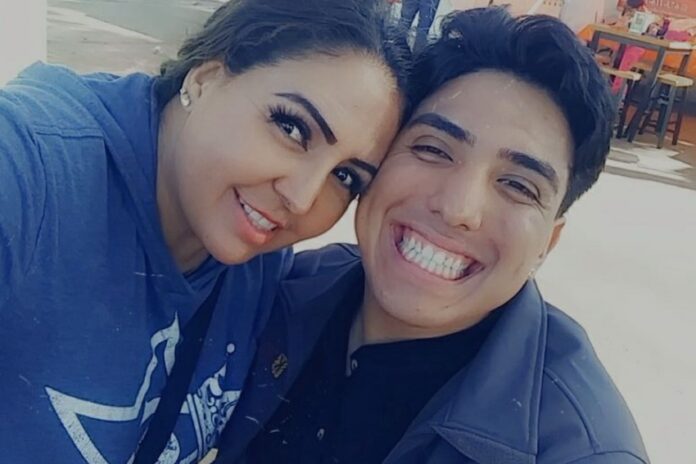By early March of this year, Mexico had received nearly 20,000 deportees from the United States since President Donald Trump returned to office, nearly 80% of whom were Mexican citizens. President Claudia Sheinbaum shared the figures in March, noting that 15,611 of deportees were Mexican nationals.
While deportation numbers rise and fall depending on who is in power in Washington, mass removals to Mexico are not new. They trace back nearly a century to the 1930s Mexican Repatriation, when hundreds of thousands of people of Mexican descent — many of them U.S. citizens — were forcibly expelled from the U.S. during the Great Depression.

In this edition of My American Dream is in Mexico, we share Jackie’s story and the painful journey she endured behind bars before returning to the country her parents once left behind.
‘Learning English became a promise to myself’
Jackie first arrived in the United States at age five, living with her family in California before returning to Guadalajara. At 17, determined to reunite with loved ones and build a future, she crossed the border again without papers.
With little English but a lot of determination, Jackie enrolled in ESL classes at her local high school. Soon after, she moved to Nevada, got married and became pregnant with her first child. But the pregnancy brought unexpected challenges. She gave birth prematurely at six months and struggled to understand the doctors in the NICU, relying on the only Spanish interpreter at the hospital, who wasn’t always available.
“I remember thinking, how can my baby’s life depend on my laziness or my lack of speaking English?” she says. “I decided I had to learn.”

Jackie kept that promise. She learned English, built a life and eventually found work at Misty Phases, a maternal health company offering postpartum essentials. “I love my job,” she says. “I see myself in so many of the girls — nervous, unsure, wondering how things are going to turn out.”
‘Whatever I learn is mine forever’
Jackie made her first big career leap from dishwasher at a nursing home to leasing agent at an apartment complex. The change came not because she had the experience but because she convinced the owners to take a chance on her. She told them she was a fast learner; they’d only need to teach her once.
The memory of her experience with premature birth and struggling to communicate with doctors stayed with her as a constant push to keep learning.
“I realized that anything I learn, I carry with me. Whatever I can learn is mine forever,” she says.
Hungry to keep growing, Jackie turned to a local realtor who, as she puts it, was “kind of lazy.” That worked in her favor.
She offered to take on the tedious tasks he didn’t want to do, if he would teach her the skills. It was the early 2000s, when computers weren’t as common in every household, so learning to write reports on a computer felt like a major step. The realtor was hesitant at first, but Jackie made her case: Once she mastered the work, he could sit back and do even less.
By 2004, when the realtor quit, Jackie saw another opening and made her pitch. She asked the apartment owners to give her a shot at managing the property, arguing that she already knew the vendors and had the skills to do the job. They agreed to give her one month. That month turned into eight years.
But nearly a decade into the role, everything unraveled. The apartment changed ownership, and the new landlords discovered Jackie was undocumented. They let her go.
The loss of her job came just as Jackie made the painful decision to leave her abusive husband. But her freedom came at a devastating cost: He refused to let her take their two sons with her.

Determined to stay afloat, Jackie found work at another apartment complex, though the pay was less than half of what she’d earned before. To make ends meet, she started selling tennis shoes at swap meets and outdoor markets, piecing together a living however she could.
‘I wasn’t myself’
Around this time, Jackie began dating a man from Las Vegas who worked in Hawaii. She visited often and, at his request, signed the lease on an apartment there. What she didn’t know was that he was involved in drug trafficking. After a delivery was made to the apartment, Jackie was arrested. Her name on the lease was enough to send her to jail.
She was sentenced to 16 months for attempting to possess drugs, but her legal troubles were only beginning. Following her lawyer’s advice, she pleaded guilty while her immigration attorney filed an asylum claim on her behalf.
The timing couldn’t have been worse: just before the raid, Jackie had suffered a miscarriage. She arrived at the federal detention center deep in postpartum depression.
“I wasn’t myself. I felt like I was just being given a tour of the prison when I got there,” she says. “The other inmates thought I’d done time before because I was so calm, but I was just depressed.”
The asylum process dragged on. Instead of 16 months, Jackie spent nearly three years behind bars. During that time, she witnessed the sexual abuse of her cellmate by a correctional officer, an experience that left her with PTSD and insomnia.
After two years in the Hawaii detention center, Jackie was transferred to a California jail to await the outcome of her case. But under President Donald Trump’s immigration policies, asylum seekers were required to wait outside the U.S.
Jackie’s petition was denied. In December 2019, she was deported to Mexico.
‘I didn’t need to be afraid to return home’
When she was finally deported to Mexico, she arrived carrying more fear than hope, convinced that returning to the country her parents had left behind would be another kind of punishment.

But once she was back, that fear began to fade.
“I probably left too young,” she says. “I didn’t realize how beautiful my country and culture are. I didn’t need to be afraid to return home.”
A few months after arriving in Guadalajara, Jackie found work at a call center. Most importantly, she reunited with her children after more than three years apart.
It was around this time that Jackie reconnected with Lizeth, a friend she had met years earlier in Nevada during her days as a property manager. Back in Mexico, Jackie proposed that Lizeth bring her on to help with her growing online store. Jackie was already doing similar work for StubHub through the call center, and she saw an opportunity to apply her skills in a new way.
Lizeth agreed, and five years later, Jackie has expanded her expertise into inventory management, customer service and e-commerce operations.
Today, Jackie’s sons are young adults in their early twenties. They visit her often in Guadalajara, and together they’ve traveled throughout Mexico, exploring the beaches and rediscovering the country she once feared returning to.
Jackie is now focused on nurturing her creative side, especially her love of photography. She wants to capture the rich, vibrant essence of Mexico — the warmth, the color, the life she has reclaimed.
“Mexico is not something to be afraid of,” she says. “It’s something to be proud of.”
Rocio is based in Mexico City and is the creator of CDMX iykyk, a newsletter designed to keep expats, digital nomads and the Mexican diaspora in the loop. The monthly dispatches feature top news, cultural highlights, upcoming CDMX events & local recommendations. For your dose of must-know news about Mexico, subscribe here.
